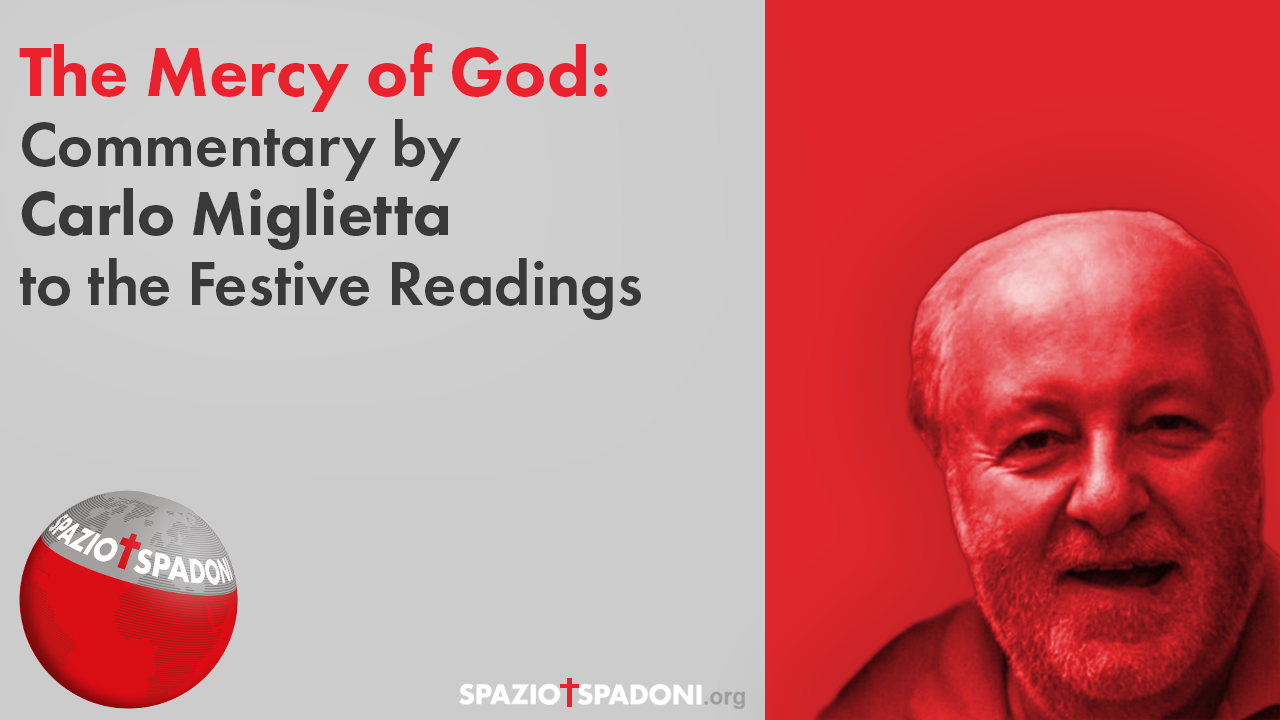
II Sunday B – The Greatness of Man
Readings: 1 Sam 3:3-10; 1 Cor 6:13-15; Jn 1:35-42
The unifying theme of today’s readings is the greatness of man.
The holiness of our bodies
The second reading is from the letter to the Corinthians, which we will meditate on for several Sundays: Corinth was a city known for its debauched customs, famous for the temple to Aphrodite where, according to Strabo, more than a thousand sacred prostitutes officiated; “Corinthian,” according to Aristophanes, was synonymous with a libertine life; moreover, the local Church was troubled by the allure of Gnosticism, which, devaluing the body, in the Christian sphere asserted that salvation is obtained only through “knowledge” of God, his “enlightenment,” while praxis counts for nothing: “Everything is lawful to me! ” (1 Cor. 6:12).
Paul strongly affirms the holiness of the body with a very strong expression, “The body is for the Lord, and the Lord is for the body” (v.13). The Hebrew concept of holiness, the “qedushah,” means to be set apart for God, to belong to him alone.Paul reiterates that the body “is for the Lord” (v.13), and that “you do not belong to yourselves” (v.19), because God himself sanctifies us, “The Lord is for the body” (v.13).
And he backs up this shocking statement with six reasons: the body is called to resurrection (13-14); we are the mystical body of Christ (15-17): therefore, sexual sin always involves the whole church and Christ himself: “Shall I therefore take the members of Christ and make them members of a harlot? “; the believer is as if married to the Lord (17): fornication is therefore treason against God Himself; adultery destroys the unbreakable unity between the two spouses, which alone is the image and likeness of God (18: cf. Gen. 1:27), thus voting man into negativity; the body is God’s temple (19); we were bought by God at a high price and therefore we are His (19-20). Our bodies must therefore be instruments to glorify God (20): what a sublime and exalted proclamation on human sexuality, to be joyfully and powerfully re-proposed today to a society that so trivializes and besmirches it!
Called to follow the Lord
But our belonging to God demands our free adherence: this is the theme of vocation response, presented to us by the first and third readings. The text of Samuel (1 Sam 3:3-10) emphasizes God’s insistence in calling us and our difficulty in catching his voice.
The Dynamics of Faith
The passage from John (1:35-42) is typological: it presents to us in a few lines the whole dynamic of believing.
The first step is “following” (37), the technical term for discipleship; the goal of following is “menein” with God (38-39: “they abode with him”), that is, dwelling, dwelling with him: the disciple escapes transience to fix himself in the eternal, in the infinite,
“To come” and “to see” are the two typical verbs of faith: the former emphasizes the human response, the latter the experience of God; and sometimes we experience God only if we have first said “yes” to Him with élan.
Then follows the profession of Faith: “We have found the Messiah!” (41); and we then become evangelizers in turn (41).
Today’s gospel is a parable of faith: we must first abandon ourselves, our way, to follow Jesus: we must first trust him, his Word, surrender ourselves to him. He then reveals himself, makes us dwell with him, makes us taste the sweetness of God. And only then, filled with him, can we overflow to our brothers and sisters, proclaiming him in joy to the world.
What greatness then has man! Predestined to be the personal property of a jealous Loving God (1 Cor. 6:12-20), he is called to respond freely to God’s Love, to become the Bridegroom of his Creator (Isa. 62:1-5): a destiny of bliss, of endless happiness!
